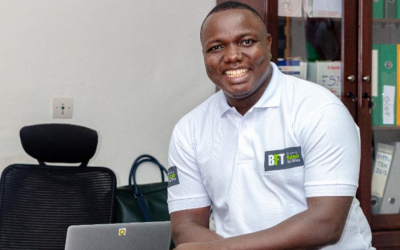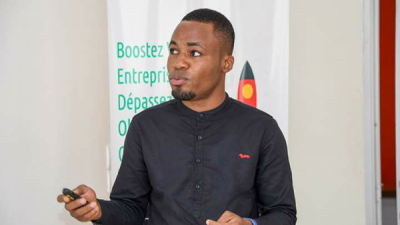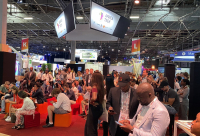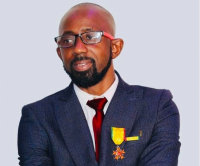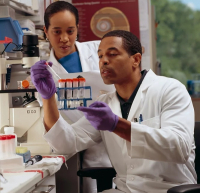E-commerce platforms have gained popularity with the Covid-19 pandemic because they are more convenient and save time.
Carniger is a website allowing users to quickly buy cars, motorcycles, trucks, and parts in Niger. The website was launched in 2017, by Africargroup, Africa’s first automotive marketplace.
To buy a product on Carniger, users have to visit the website, check the information of listed cars/motorcycles/trucks, and select what they like. Users either register or login in and contact the seller either through the website’s chat feature or by dialing the number listed. Buyers can also directly make counter-offers for the products listed.
The website also has a buy now and pay later service that connects potential buyers with specialized institutions for vehicle financing. To access that service, interested buyers must submit a valid Nigerien ID card or passport, justify a permanent source of income, and provide a bank statement dating six months before the financing request. Then, they fill out a form to quickstart the process.
Let’s note that the platform also facilitates insurance subscriptions.
Adoni Conrad Quenum
Tech solutions have become handy tools in most sectors. In the education sector, platforms are also proliferating to help learners in their curriculum.
Ennajah QCM is a digital platform developed by Bibliothèque Ennajah, which allows students in clinical clerkship and residency training access to specialized books and courses. It helps students check their knowledge with multiple-choice questions.
Ennajah QCM "is a virtual platform that allows quick access to all the MCQs needed to pass the various Setif clinical clerkship and residency evaluation exams. It, therefore, facilitates the simple and accurate review of the skills developed by students,” Bibliothèque Ennajah explains.
The platform is accessible through a mobile app currently available on Playstore only (the iOS version will be available soon, according to Ennajah). Users have just to register by providing the information required. Once completed, he/she can start answering the multiple-choice questions or even personalize the questions to answer by filtering the sources, courses, modules, exam years, and pass rate.
Currently, Bibliothèque Ennajah claims 86,616 MCQs on Ennajah QCM and over 10,000 app downloads.
Adoni Conrad Quenum
Africa’s fintech sector is currently attracting huge amounts of investment capital. The reason for that interest is the continent’s poor financial inclusion and the startups offering interesting alternatives.
Motito is a Ghanaian fintech startup founded in 2020 by Tobi Martins. The startup allows its users to buy products and pay in installments from partner brands.
In its own words, it gives users “the chance to buy items for personal and business needs without breaking the bank.” It also promises partner brands “to turn window shoppers into actual paying customers” and increase their order value by 40%.
The startup has a mobile app (available on Android and Ios phones). The app, called Motito PayLater allows users to access all the services the startup offers. To access those services, users must first register and activate their accounts by filling in the information required at each stage of the process.
Once they activate their accounts, they can visit the online stores of partner brands, make purchases and select the payment plans most suited to their income flows. The maximum installment period is three months, however.
With Africa’s credit access challenges, solutions like Motito’s are needed to combat financial exclusion. In June 2022, the fintech startup was selected with eight others to participate in the second edition of the Norrsken Impact Accelerator.
Adoni Conrad Quenum
By training, he was destined for a career in public health and epidemiological surveillance. However, he chose digital entrepreneurship. Nowadays, he is a startup builder whose ambition is to develop effective solutions for well-defined needs in Africa.
Amos Avoce (photo) is a Beninese digital entrepreneur and founder of 229Founders, a startup studio he launched this year. In his own words, “229Founders is neither an incubator nor an accelerator or a coworking space. It is a startup builder.”
“Incubators and accelerators incubate startups but 229Founders creates startups,” he stresses. Through the startup builder, Amos, and his team identify needs that can be addressed with lasting and efficient tech solutions. They then issue calls for expression of interest for co-founders interested in creating solutions for those needs, back the startup in charge of addressing the needs (they take stakes in those startups) from creation till the marketing of the solutions created.
Amos is not a newcomer in the Beninese tech ecosystem. In 2017, he had already co-founded Bénin FinTech (BFT), a startup guiding financial institutions in their digital transformation. BFT notably developed SmartPay, a fintech solution that allows microfinance institutions to digitalize their savings and credit issuance processes. The startup also developed SmartAgri, a system facilitating agricultural credits.
The young social entrepreneur is a graduate of the University of Parakou’s National School of Technicians in Public Health and Epidemiological Surveillance (in Benin). In 2011, one year before his graduation, he joined Give1Project, an NGO dedicated to “building strong and healthy communities.” He is, since 2013, the country manager for ADS Group, which “designs and implements solutions to help develop Africa.”
He also actively participated in the deployment of the Akon Lighting Africa project started by Senegalese-American singer Akon.
Melchior Koba
Ecommerce is booming in several African countries. So, most governments have introduced reforms and incentives to encourage the activity. To benefit from those incentives, some buyers indulge in fraudulent acts. Therefore, Morocco is introducing the tax to protect the local industry and secure more revenues.
Morocco will tax every good purchased online and shipped from abroad starting from July 1, 2022. The decision is decreed in ordinance n° 2-22-438 issued during the ministerial council carried out last Thursday, June 16. According to the decision, all the goods purchased via electronic platforms are now subjected to import duties no matter their value. Goods delivered before the law’s effective date will not be affected, the ordinance stresses.
The new ordinance amends article 190-E of decree n°2-77-862, which exempts some goods and parcels from import duty. Goods and parcels worth less than MAD2,000 (US198.65$) imported by individuals with ordinary residence in Morrocco and those worth less than MAD1,250 (about US$125) (except for alcoholic drinks and tobacco) sent to natural or legal persons domiciled in the country were included.
Article 190-E is amended because Morocco noticed that with the boom of e-commerce activity in the country, some users have developed fraudulent practices to benefit from the exemption. For instance, large goods exceeding the exemption limits are fractioned and sent to multiple persons even though they are destined for one individual or legal person.
Speaking during a press conference after the June 16 ministerial council, government spokesperson Mustapha Baitas explained that the new decisions are aimed at combating fraudulent practices. "The project aims to strengthen customs control procedures for parcels bought online and delivered from abroad,” he said.
For the spokesperson, those acts harm the Moroccan economy-local businesses particularly- and deprive the government of important resources. In 2021, he estimates, more than MAD1 billion worth of goods bypassed taxation using fraudulent schemes to benefit from the exemption provided by article 190-E. For the government official, that figure could rise to MAD2 billion this year.
Ruben Tchounyabe
During his medical studies, he stumbled upon a scientific paper that prompted him to streamline health exchange and collaboration. The innovation now helps save lives and earns its founder accolades and awards.
Sedric Degbo (photo) is a Beninese doctor, entrepreneur, and founder of the African Doctors' Exchange Network (REMA). For the entrepreneur, “health exchange and collaboration always save lives.” Therefore, his mission with REMA is to make the exchange and collaboration process more efficient with digitalization.
His network allows remote medical collaboration and facilitates collective intelligence and solidarity between doctors practicing on the African continent. Its mobile platform gives doctors the opportunity to discuss practical cases in real-time with their colleagues for improved medical decisions. Currently, it claims an active community of over 6,000 doctors, most from West Africa.
Sedric got the idea to create REMA in 2016 during a research work when he stumbled upon a scientific paper on medical mistakes in the world.
“The conclusions were really alarming, so I decided out of curiosity to find the data concerning Africa… The figures specified by numerous authors proved that medical mistakes are real public health issues on our continent. An analysis of those figures demonstrates that beyond the organizational challenges of the African health system, the high number of medical mistakes on the continent is due to doctors’ low level of information, their isolation, and the lack of a suitable mechanism to communicate with peers,” he explained in 2020.
Thanks to REMA, the young entrepreneur who worked for Caritas International between 2016 and 2019 has received numerous awards. In 2019, he was awarded the first Inwidays prize in Casablanca and the first BreizhAfrica prize in Paris. He also received the second Afric'Up prize in Tunis. The following year, he received the Covid-19 Solidarity Award from the International Organization of the Francophonie. This year, he is on the Medika Life 50, a list of the 50 most influential voices in the healthcare industry. Since September 2021, he is a member of the executive board of Bluemind Foundation, an NGO making mental healthcare accessible for every African.
Melchior Koba
Digital jobs are now popular because of the technological revolution, which was accelerated by the coronavirus pandemic. In Africa however, there is still a digital skill gap. Some edtech startups want to close that gap.
GOMYCODE is a teaching concept developed by Tunisian edtech GoMyCode to teach advanced programming and digital courses. It includes a mix of projects and exercises to allow learners to master the skills taught. Half of the courses are taught online and the other half at the 20 offline centers the startup has in its markets, namely Bahrain, Morocco, Egypt, Algeria, Côte d’Ivoire, Senegal, and Nigeria.
For Amine Bouhlel, co-founder of GoMyCode, the teaching concept has notable impacts. “There are a lot of impact and mass-market players. We are targeting a wide range of students. So our courses are not just for graduates, professionals, or people from a specific social class. [...] GOMYCODE programs target mass markets, and our blended model makes us accessible and affordable, which you don’t see a lot,” he explains.
The concept is taught by over 500 teachers who teach in 12 languages. The startup has launched more than 25 training paths with professionals. Its fees vary between US$250 (for 3-month courses) and US$750 (for 5-month courses). For every student trained it guarantees placement with one of its over 100 partner institutions. Currently, it claims it has already secured placement for 80% of its over 10,000 learners.
Currently, the startup plans to attract more than 100,000 learners and open an additional 50 offline centers in Africa and the Middle East in the next two years. For that purpose, early this month (June 2022), it raised US$8 million to expand its presence. Its target markets are South Africa, Kenya, Ghana, and Saudi Arabia.
Adoni Conrad Quenum
The final phase of the AfricaTech Awards was held in Paris, on the sidelines of Viva Technology 2022. Three start-ups were awarded out of the 45 competing since May 2.
Weee Centre, Chefaa, and Click2sure are the winners of the first edition of the AfricaTech Awards, respectively in the climateTech, healthTech, and fintech categories.
The winners were selected last Saturday in Paris, France during an event hosted by Proparco and the International Finance Corporation (IFC) while New Energy Nexus, Cassava Technologies, and Orange S.A sponsored specific categories.
According to IFC’s Managing Director Makhtar Diop, “Africa is buzzing with innovative tech solutions that can help address climate change, promote food security, and expand financial inclusion. [...] Yet over 80% of African startups report difficulties in accessing funding. Initiatives like the AfricaTech Awards, which bring together entrepreneurs, governments, and investors, are key to attracting the resources and support that tech startups need to scale their innovations across the continent and beyond,” he adds.
Weee Centre, the winner in the climate tech category, is a Kenyan start-up founded in 2012. It provides e-waste management services and carries out "safe" green operations to protect the environment and human health.
Chefaa (winner in the healthtech category) is an Egyptian startup founded in 2018. It makes it easy for people suffering from chronic diseases to order drugs from pharmacies and get them delivered to their doorsteps or renew medical prescriptions.
For Click2Sure, the winner in the fintech category, it is a South African startup founded in 2015. It is a software as a service (SaaS) startup created to make life easier for companies operating in the insurance sector.
Adoni Conrad Quenum
In 2010, he returned to his native country because of family issues. During that period, he identified needs he could help with and created Famib Group with the ambition of contributing to digital transformation. Some dozen years later, that ambition is still much intact.
Amadou Diawara (photo) is a Franco-Malian computer scientist, an entrepreneur, and the founder of FAMIB Group, a Bamako-based software company. In 2010, he was working as an office manager for WFS (Worldwide Flight Services) in France when family issues forced him to return to Mali. Once in his native country, he became aware of the various needs in the local market, so he established Famib Group to answer them. Over the years, the group has grown significantly with a presence in Mali, Côte d’Ivoire, France, Niger, Rwanda, Canada, and the USA.
Through Famib Group, Amadou Diawara heads several subsidiaries including Famib Consulting (specialized in consulting services), Delta Challenge (develops integrated digital solutions), and incubator FAMIB Labs. He also launched the Kingui Express marketplace and the Kingui Social network, the e-wallet payment system Xaalisi (creator of the Xaalisi and Mali Wari cryptocurrencies), and the Kingui Coin exchange platform, the Mali Virtual University, and Cluster Digital Africa whose aim is to improve the African digital ecosystem.
The Knight of the National Order of Mali considers himself one of Africa’s “digital transformers.” He is also committed to innovation research for the development of Africa because, “with everyone’s help, we can create unprecedented opportunities,” on the continent.
Melchior Koba
The lack of technical services in health facilities in many low- and middle-income countries makes it even longer to provide effective care to the population. Digital technology is presented as a solution to address this challenge.
The National Institute for Health and Care Research (NIHR), a UK government agency that funds health research, has approved the disbursement of £3 million ($3.6 million) to support the development of digital diagnostics in health systems in seven African countries. Imperial College London, which released the information on Tuesday, June 14, explained that the money was made available to its researchers and 13 collaborating institutions in Burkina Faso, Gambia, Ghana, Kenya, the Netherlands, Sudan, Uganda, the United Kingdom, and Zambia.
Dr. Aubrey Cunnington, Division Head of Pediatric Infectious Diseases at Imperial College London, who will lead the research program, explained that “We will evaluate the potential of digital diagnostic technology to tackle common problems including malaria and other childhood infections. The researchers in the project have a wide range of expertise, from electronic and design engineering to clinical medicine, health systems research, and mathematical modeling.”
“At present, less than half of the population of Africa have access to essential, accurate diagnostics. This makes it difficult to identify and administer the correct treatments, and to target disease prevention where it is most needed,” he said.
The NIHR funding is part of its Global Health Research Group (GHRG) program, which funds research, and supports research partnerships between researchers and institutions in the UK and in low- and middle-income countries (LMICs). The GHRG aims to generate scientific evidence that can improve health outcomes for low-income people by improving practice and informing policy. It also strengthens research to support its future sustainability in partner countries.
The funding will allow GHRG to develop and evaluate next-generation digital diagnostics for infectious diseases over the next four years. These digital diagnostics will use a handheld electronic device developed by a team of researchers at Imperial College London. Called Lacewing, it detects nucleic acids such as DNA on the surface of a microchip.
According to experts, the tests have similar accuracy to large laboratory machines but are fast, inexpensive, and portable. Results are sent to a smartphone that allows data transmission to monitor the real-time detection of different diseases at different locations.
Ruben Tchounyabe
More...
Apart from internet connection, the availability of qualified human resources is the key challenge delaying digital transformation in Africa. So, Kenya is moving to prepare students for the connected world.
Last week, Kenya officially launched the first coding curricula to be taught in primary and secondary schools. The curricula were developed in partnership with Kodris Africa, an online publishing company that teaches learners how to code. The curricula include hands-on lessons that will help young people develop their problem-solving skills.
“Adding coding to the school curriculum will enhance students’ technological skills and put them on the scope in the ever-growing world of technology,” explains Kodris Africa CEO Mugumo Munene.
According to ICT Cabinet Secretary Joe Mucheru, “the world is changing and everyone is going digital and Kenya will not be left behind as the globe goes digital.” For George Kinoti, Director of Criminal Investigations, it is important to give children IT skills because nowadays, everyone uses information technology, even criminals. “Equipping our children with IT skills in schools is very important because in today’s world even the police must be well trained in computer technologies to fight criminals who are now tech-savvy. Technology helps us bust crime in real-time and stay ahead of the criminals,” he said.
The curricula were approved by the Kenya Institute of Curriculum Development (KICD) on April 19, 2022. The development of those curricula is in line with President Uhuru Kenyatta's Digital Literacy Program (launched in 2016) and the National Digital Master Plan (2022-2032), which provides for an improvement in the country’s digital skills. At the time, CEO Mugumo Munene had already indicated that it would be highly valuable for students to learn to code. “When students learn to code, they can become producers in this 21st Century digital age rather than merely consume what is created by others," he said.
Ruben Tchounyabe
In several low and middle-income countries, healthcare is still delayed by the poor technical services offered by health centers. The funding will help address the situation by improving medical diagnosis, which comes first before any medical intervention.
UK government agency National Institute of Health Research (NIHR) recently released about US$3.6 million to support the development of digital diagnostic tests for infectious diseases in seven African countries. The information was disclosed by the Imperial College London, in a release published, Tuesday (June 14). According to the release, the funding was awarded to researchers at the Imperial College London and those of 13 collaborating institutions in Burkina Faso, the Gambia, Ghana, Kenya, the Netherlands, Sudan, Uganda, the United Kingdom, and Zambia.
“We will evaluate the potential of digital diagnostic technology to tackle common problems including malaria and other childhood infections. The researchers in the project have a wide range of expertise, from electronic and design engineering to clinical medicine, health systems research, and mathematical modeling,” explains Dr. Aubrey Cunnington, Reader in Paediatric Infectious Diseases and head of the digital diagnostic test development project.
“The project addresses a huge unmet need for access to accurate diagnostics in low- and middle-income countries. [...] At present, less than half of the population of Africa has access to essential, accurate diagnostics. This makes it difficult to identify and administer the correct treatments, and to target disease prevention where it is most needed,” he stressed.
The NIHR funding is part of its Global Health Research Group (GHRG) program, which supports research partnerships between research institutions in the United Kingdom and in low- and middle-income countries (LMICs). The GHRG aims to generate scientific evidence that can improve health outcomes for low-income people by helping improve health practices and guide policies.
“Over the next four years, the funding will enable the GHRG to develop and evaluate next-generation digital diagnostic tests for infectious diseases,” the Imperial College indicates. To develop the tests, researchers will use Lacewing, a hand-held device developed by an Imperial College team. The device performs highly sensitive detections with an accuracy similar to that of large lab machines but it is portable, low-cost, and rapid, we learn. “The results are immediately linked to a smartphone which enables data transmission to monitor the real-time detection of different diseases in different locations,” the Imperial College London concludes.
Ruben Tchounyabe
In Gabon, the coronavirus caused a decline in blood donations, which were already not enough to meet demand. Ntchina wants to reverse the trend and help save more lives.
Ntchina is a digital platform that matches blood donors with recipients. The platform was first presented to the public by its developer (the eponymous Gabonese startup Ntchina) in 2021. On Tuesday, June 14, 2022, on the sidelines of World Blood Donor Day, it was officially launched.
Alvine Yeno, Ntchina’s founder, explained that the platform is the result of a sad experience. Indeed, one of her relatives suffering from lupus needed a blood transfusion but none of the calls for donors issued by her family yielded a result. “It was difficult finding donors. Calls for donors made on social media and to other relatives were not successful… I then asked myself what I could do to make that search more effective and help those in need. So, I started developing the project,” she explains.
The platform has a mobile app (available on AppStore and Playstore) that allows access to all of its services. Users can either register as donors or recipients by filling in a set of information including hometown and blood type. When donors with specific blood types are available, the platform can send alerts to users who activated that option. “Our mission is to facilitate blood donation for better care to those in need, notably sick people, pregnant women, accident victims, etc,” Alvine says.
Her startup also developed an online game to raise awareness of the importance of blood donation. Her initiative is highly important given that in Gabon, since the onset of the coronavirus pandemic, blood donations have declined. Before the pandemic, authorities used to collect about 23,000 blood bags yearly. The volume was not enough to meet demand but, with the coronavirus-spurred decline, the gap between supply and demand has widened considerably. With Ntchina (which means "blood" in Myene), the gap could be reduced and more lives saved.
Adoni Conrad Quenum
His professional career started in 2011 when he joined his family’s business Food & Beverage Madagascar. But nowadays, he is a seasoned entrepreneur serving clients from every part of the globe.
Habib Hassim (photo) is a Malagasy entrepreneur and the co-founder of SmartOne Group, a startup specializing in data labeling and AI advisory. The startup started, in 2012, as a call center but gradually expanded its services. It now serves a broad range of industries notably mobility, e-commerce, agriculture, health, biosecurity, media, and finance. It provides those industries with smart tools that improve decision-making and management.
On June 10, 2022, Hassim signed a partnership agreement with telecom operator Orange Madagascar to implement a joint AI training program and facilitate the professional integration of Malagasy long-term job seekers and those who are no longer in the education system, being trained, or working.
His professional career began in 2011 with Food & Beverage Madagascar, the country’s largest agri-food producer and, distributor. He is now the managing director of the agri-food producing group controlled by his family. In 2019, he became the head of private equity fund manager Inside Capital Partners to “build next-generation champions.”
Melchior Koba





